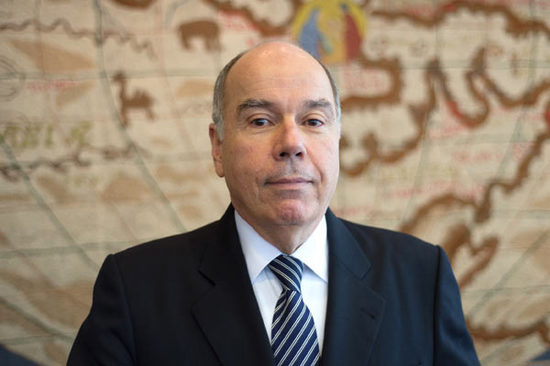Four years ago, this blog called on Brazil’s Foreign Minister to launch a regional charm offensive to strengthen Brazil’s position in South America. Today, Brazil’s Foreign Minister is engaged in a very different kind of charm offensive: One that aims at his boss, President Dilma Rousseff. Gaining the president’s attention and convincing her that the Foreign Ministry can be an important instrument in promoting her interests will be a crucial first step in restoring Itamaraty’s standing and reviving Brazil’s foreign policy in the coming years.
Being respected and listened to by the president is the ultimate currency of power in the capital. Those who have the president’s ear immediately rise in the hierarchy and are able to project their own power and push through their projects. In the same way, those who are known to have little access to the president have greater difficulties even in negotiations with other members of the cabinet or with any other entity in Brasília. Even small request will take longer to be answered. Budgetary concerns will fall on deaf ears. New initiatives are more likely to be nipped in the bud since cooperation will generate few advantages vis-à-vis the presidency.
As the president is beginning her second and final term, many ministers will, in search for more power, try to convince Dilma Rousseff that their respective area – be it education, health or culture – is crucial to build her personal legacy and assure her positive image in the history books. Interestingly enough, this scenario may offer opportunities for the Foreign Ministry. In several countries around the world, lame duck presidents traditionally enjoy dabbling in foreign policy, particularly when the domestic stakeholders have long set the stage for the succession battle. Paradoxically, a domestically isolated president may come to identify foreign policy as one of the few areas that offer freedom of action, the chance of having a tangible impact, and to polish his or her global reputation. In some cases, state leaders relish traveling around the world, where they still garner respect, while they face an inhospitable environment in the capital.
In an ideal world, Mauro Vieira could convince Dilma Rousseff in a rational debate that foreign policy is an essential tool to further the country’s interest, and that the Foreign Ministry can provide invaluable help to all other ministries, rather than contest their space, as they engage on the global stage. Yet as such a scenario is unlikely, Vieira’s challenge is to develop a narrative that will convince the president of Itamaraty’s importance for her personal projects — be it building a grand legacy or simply getting away from the toxic political battles in Brasília.
Read also:
Can Mauro Vieira rescue Brazil’s foreign policy?
Brazil’s next government must reassert its global role
Book review: “The System Worked” by Daniel W. Drezner
Brazil’s missing voice at the Munich Security Conference
Photo credit: Ministro das Relações Exteriores / Flickr









